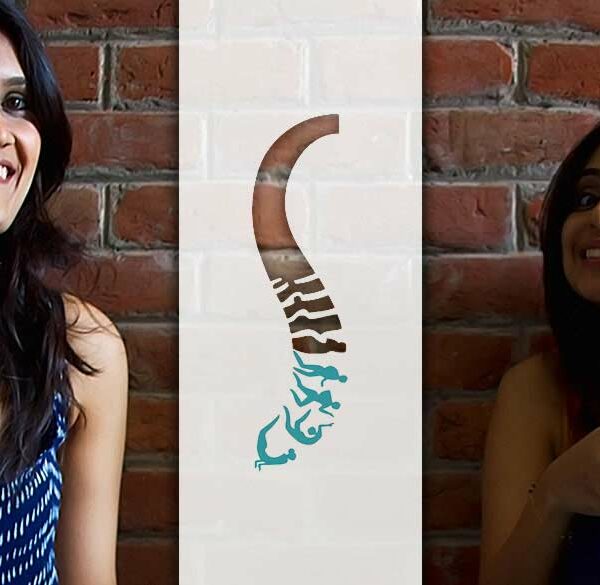So, would you live to be gifted, yet haunted. Beautiful yet invisible? Surrounded with people but lonely? Perhaps, not!
Let’s delve deeper in what this entire character of Mira is all about.
No, she isn’t a tragedy queen. Instead, her life is going to literally excavate your inner fears and demons, in a very intricate way that in the end, you will feel as if it’s your story.
To start with, what does it mean to be a woman?
No, not just for a man to know, but also for a woman to know, that what it means to be a woman? Complicated, right?
To start with, nothing in our social system can balance the inequality that has been created against women, making them the victims of their own memory.
Delving deeper into this fact, Kota Neelima’s recent book (The Honest Season) has a protagonist, Mira Mouli, who actually conquers this inequality. How? Well, she has been endowed with the gift to predict, to intuitively know the future.
For example, with just one look Mira knows that the yellow hair-band of the chatty receptionist was the brightest thing she had worn in months. She no longer wore her wedding ring, and Mira knew she didn’t miss it. Or the clerk who greeted her as he walked by in the corridor; his interest in religion had begun soon after he was overlooked for a recent promotion. People’s thoughts seeped through her mind to mix with her observations and rapidly filled up the missing parts of the puzzle. It was as if she moved through a frozen, invisible grid, and if she allowed it to flow, she would know exactly how the day had been for the entire newsroom. But the unwanted detail was a burden, thoughts the weight of water that threatened to drown her if she didn’t know how to float. So she learnt to disengage, close her mind to remain unscathed in her office and in her life in general. She survived because of a few uninhabited islands; pockets of relative thoughtlessness that allowed her to come up for air briefly.
She stands against all odds, political conspiracies, death threats and even murder attempts, remaining audacious and head-strong throughout. But she, deep down, is haunted by her own fears, her own inability to believe in the façade of life as every illusion lifts in front of her, as soon as she casts an eye on it. That was how nature endowed her to be equal with men, who are more powerful.
But is it the only way, perhaps, that women can be equal than men?
Can’t gender equality be based more on equal payment, employment, and respect and capital investment on women?
Well, the answer is no.
In the current globalized world, when women are also treated as economic commodities, be it through work-place or prostitution, women have been bearing the burden of the past. Even though India has modernized, there are hardly any women left who can valiantly say that they have never been abused, or perhaps they do not carry the memory of this abuse. To add to the deficit which is already present in the lives of women, the social, political and economic malaise of the country further worsens it up. Women of today, as Mira Mouli’s character narrates are not the products of empowerment but the products of their memories, which have often been rebuked and harassed in ways that cannot be fathomed in present day and age.
Hence, society can never bestow equality to women. Instead, it is the nature that has to, just in the case of Mira, to face the disequilibrium in the lives of vulnerable women.
Women are so burdened by knowing. Knowing everything: what they can be, what they cannot be, what line they can cross, how they should behave, how should they pretend. Right from the time of their birth, they have been fed with this idea of false consciousness of being someone the society wants them to be. In this case, thus, their identity itself alienates them from their own individuality, which they have no idea to adhere to.
Perhaps, the women of yesterday could not achieve a lot, what the women of today can do, but does that really count as progress?
Women have been lost, into the past and the future. Their entire existence is oblivious to the present. For a girl to survive in a meaningful way in the society is still very difficult and precarious. There are dogmas at every step, judgments on the other.
Mira Mouli’s character is also an orphan. The identity of an orphan should not be overlooked in a superficial way. Here, the connotation of being an orphan has a huge impact on the identity of women, too. Every woman is a tenant in every bracket of life. The power structure of the patriarchal society has been constructed in such a manner that a woman is never able to own a place. Her entire life is spent like a tenant. She belongs to nowhere. Though, she tries her level best to camouflage the void, to show dexterously that she belongs to her home, her family, her life but in reality, she is too over burdened with switching roles and playing parts.
All incomplete and simultaneous, draining away all her energy! So, who is a woman, actually? Perhaps, the women themselves truly do not know. It’s not that they have not attained the evolution of self-realization. Perhaps, they actually have and hence, the void grows deafening, the screams get scathing and the remarks get obnoxious. These patterns are prevalent in every woman’s life, because whether or not she knows it, she has been trained to be a dependent, a parasite, a liability. The economic and political system of our country, that she debates on what rape is, should prostitution be allowed or what malaise does widows of Vrindavan have to undergo, both mentally and physically, is simply inept and understanding the very identity of women and her needs.
Lastly, the character of Mira is obsessed with a death wish which she tries to fight. The need for death is not because of the conventional arguments but because she wants to be free. She knows that in today’s society, true liberation can be won only be embracing the end of it. The freedom which we are scared of is what delivers us to it. Mira knows that the only way she will ever get a place of her own is after she dies. Only then she will not be uprooted, socially, politically and economically. That is where is truly belongs.












